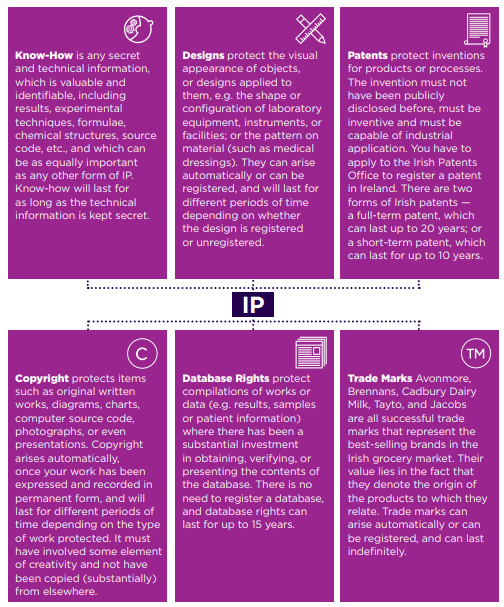What is Intellectual Property?
Intellectual Property, also known as IP, is any intangible asset consisting of knowledge and ideas. Like any form of physical property, IP is owned and it can be bought and sold. It can also be rented out through a process of licensing that can result in significant commercial and financial benefits for individuals, research groups and the organisations employing them.
Knowledge and ideas resulting from research are considered to be intellectual property and can be a valuable asset that should be protected from infringement or copying. It is important to understand whether research has resulted in intellectual property and to know how to protect any intellectual property that may be created through research having been undertaken.
Understanding Intellectual Property from research
Intellectual Property can take various forms which are summarised below. You can read more about IP from R&D and how to go about protecting it in KTI’s Guide to Intellectual Property & Confidentiality.

National IP Protocol
Ireland's framework for research commercialisation is called the National IP Protocol. It provides for best practice, guiding on the expected norms for research-related engagements between industry and State research performing organisations (RPOs) and the formation of spin-out companies from State research. Learn more about Ireland's framework for research commercialisation.
The KTI Practical Guide to Managing Intellectual Property & Confidentiality provides an overview of key issues relating to Intellectual Property (IP) which are likely to arise during your research career. The Guide is applicable to researchers in Higher Education Institutes (HEIs), State research organisations and to researchers in industry.
pdf 973.5KB
This is one of the KTI Practical Guide series which are designed to aid understanding and planning around issues relating to intellectual property and to the negotiation of commercial arrangements between companies and Irish research performing organisations (RPOs).